As Harry Caray used to say, “The Big Possums Walk Late”.
 Without any question, Spring 2021 looks like it has a chance to be the best anime season since at least 2018 (though that’s still no lock by any stretch). It’s gotten some help no doubt, in series like Fumetsu no Anata e being pushed back due to the pandemic. But the thing is, even though To Your Eternity was my top pick of the season and it’s among the very last shows to premiere, I felt no stress here. For once, the top dog didn’t have to come through to keep the season from being a disaster – it was already good, whatever happened. And that was a damn nice feeling.
Without any question, Spring 2021 looks like it has a chance to be the best anime season since at least 2018 (though that’s still no lock by any stretch). It’s gotten some help no doubt, in series like Fumetsu no Anata e being pushed back due to the pandemic. But the thing is, even though To Your Eternity was my top pick of the season and it’s among the very last shows to premiere, I felt no stress here. For once, the top dog didn’t have to come through to keep the season from being a disaster – it was already good, whatever happened. And that was a damn nice feeling.
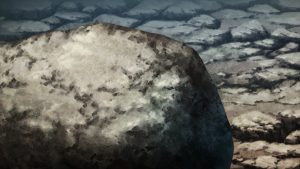 I knew it would come through, though. And that takes the heat off too. This is a terrific manga (by Koe no Katachi mangaka Ooima Yoshitoki), and while Murata Masahiko may not be a name known to most anime fans he’s a seriously good director who’s been at this a long time. With Baby Steps, he proved he could take a masterpiece of a manga – and a limited budget – and successfully transition it to the screen. The only real mystery element here was Brain’s Base, once upon a time maybe my favorite studio but a shadow of its old self since much of the talent left to form Studio Shuka in 2013.
I knew it would come through, though. And that takes the heat off too. This is a terrific manga (by Koe no Katachi mangaka Ooima Yoshitoki), and while Murata Masahiko may not be a name known to most anime fans he’s a seriously good director who’s been at this a long time. With Baby Steps, he proved he could take a masterpiece of a manga – and a limited budget – and successfully transition it to the screen. The only real mystery element here was Brain’s Base, once upon a time maybe my favorite studio but a shadow of its old self since much of the talent left to form Studio Shuka in 2013.
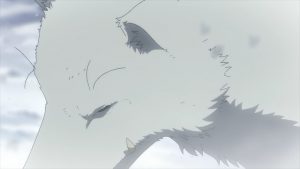 I was surprised, frankly, that Brain’s Base got this adaptation. It’s certainly the most high-profile series they’ve produced since the schism. But in the end, it just makes the fact that Fumetsu no Anata e turned out to be as great as expected that much sweeter. This is a phenomenal start but it feels so sweet to see Brain’s Base flying high again, at least for a while. I don’t know about the budget here (better than Baby Steps for certain), but the first episode is beautiful. It looks like the manga, but it also looks like a Brain’s Base show. And this isn’t the sort of story that’s going to require a ton of lights-out animation in the first place.
I was surprised, frankly, that Brain’s Base got this adaptation. It’s certainly the most high-profile series they’ve produced since the schism. But in the end, it just makes the fact that Fumetsu no Anata e turned out to be as great as expected that much sweeter. This is a phenomenal start but it feels so sweet to see Brain’s Base flying high again, at least for a while. I don’t know about the budget here (better than Baby Steps for certain), but the first episode is beautiful. It looks like the manga, but it also looks like a Brain’s Base show. And this isn’t the sort of story that’s going to require a ton of lights-out animation in the first place.
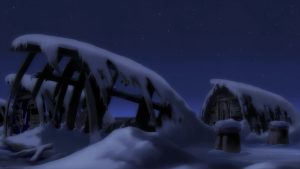 This is one of those prologue premieres, like Cross Game, that tell a self-contained and heartbreaking story that sets up the main story. It spins the tale of (as he’ll eventually be called) Fushi (newcomer Kawashima Reiji, sounding a bit like Yamashita Daiki), a boy living alone in an abandoned village in what appears to be the Arctic. It’s also the story of an immortal being cast down to Earth as an orb of light by an omnipotent narrator (played by Tsuda Kenjirou – nice to see him get some work at last). First it exists as a rock, them moss. Eventually it takes on the form of a white wolf that’s just died of a wound. That wolf is the companion of the boy, who’s very glad to see it when it arrives back at his lonely hut on the ice.
This is one of those prologue premieres, like Cross Game, that tell a self-contained and heartbreaking story that sets up the main story. It spins the tale of (as he’ll eventually be called) Fushi (newcomer Kawashima Reiji, sounding a bit like Yamashita Daiki), a boy living alone in an abandoned village in what appears to be the Arctic. It’s also the story of an immortal being cast down to Earth as an orb of light by an omnipotent narrator (played by Tsuda Kenjirou – nice to see him get some work at last). First it exists as a rock, them moss. Eventually it takes on the form of a white wolf that’s just died of a wound. That wolf is the companion of the boy, who’s very glad to see it when it arrives back at his lonely hut on the ice.
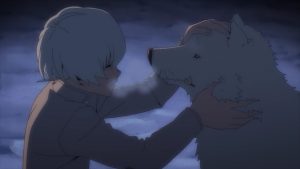 Fushi looks about 13, and he reminds the wolf he calls Joann that the others in his village left him five years earlier, setting off to find greener pastures to the south while he remained with the elderly. They died off one by one, eventually leaving him all alone apart from the wolf (the circumstances of its departure are never explained). The running conversation Fushi has with Joann is clearly the boy talking to himself – both to try and stay sane and to help his mind process the brutal choices he has to make. It’s a hard, bitter existence, but the boy retains a stubborn optimism in the face of it.
Fushi looks about 13, and he reminds the wolf he calls Joann that the others in his village left him five years earlier, setting off to find greener pastures to the south while he remained with the elderly. They died off one by one, eventually leaving him all alone apart from the wolf (the circumstances of its departure are never explained). The running conversation Fushi has with Joann is clearly the boy talking to himself – both to try and stay sane and to help his mind process the brutal choices he has to make. It’s a hard, bitter existence, but the boy retains a stubborn optimism in the face of it.
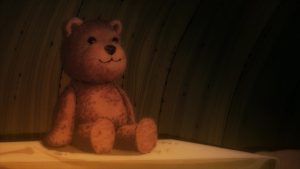 I knew what was coming of course, but even if I hadn’t, it would have been pretty obvious. Fushi is in a no-win situation – in his heart he knows the others aren’t coming back, even if he doesn’t know the reason. He can stay and scrape out an existence until the eternal whiteness claims him, or he can embark on a hopeless mission to find the others and the green paradise they sought. It takes courage to choose as he does, but Fushi is certainly not short on that. Every small victory – an arrow scratched onto a rock, a scraggly bush he calls a tree – feels like crying out into the eternal emptiness.
I knew what was coming of course, but even if I hadn’t, it would have been pretty obvious. Fushi is in a no-win situation – in his heart he knows the others aren’t coming back, even if he doesn’t know the reason. He can stay and scrape out an existence until the eternal whiteness claims him, or he can embark on a hopeless mission to find the others and the green paradise they sought. It takes courage to choose as he does, but Fushi is certainly not short on that. Every small victory – an arrow scratched onto a rock, a scraggly bush he calls a tree – feels like crying out into the eternal emptiness.
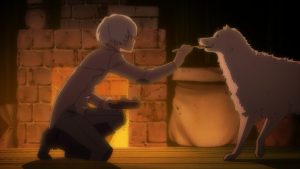 The really sad part of all this for me is the way Fushi lies to himself, and the facade slowly wears down as things get more and more desperate. That, and the way Joann stares at him – understanding more than a wolf would, but not truly understanding something so alien. It’s not necessarily subtle, this intro, but it’s certainly effective. Murata delivers all this with quiet, dignified reserve – he doesn’t dwell on the obvious tragedy of it, but let’s that speak for itself. Whether the Immortal will be able to grant the boy’s final wish – to be remembered forever – is unknown. But if any being was in a position to do so, this one is.
The really sad part of all this for me is the way Fushi lies to himself, and the facade slowly wears down as things get more and more desperate. That, and the way Joann stares at him – understanding more than a wolf would, but not truly understanding something so alien. It’s not necessarily subtle, this intro, but it’s certainly effective. Murata delivers all this with quiet, dignified reserve – he doesn’t dwell on the obvious tragedy of it, but let’s that speak for itself. Whether the Immortal will be able to grant the boy’s final wish – to be remembered forever – is unknown. But if any being was in a position to do so, this one is.
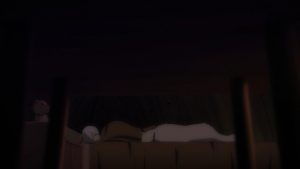 The real story begins now, and of course it will be quite different from the prologue. But I think one can get a good sense of what Fumetsu no Anata e is about, just the same. Murata-sensei has 20 episodes with which to deliver the essence of the ongoing manga, and that’s more than enough time to accomplish the task in my view. This season is pretty loaded, but even in context To Your Eternity is a very special piece of work – profound and melancholy, reflective and often unsparing. There was never much doubt that the anime would be great, but that does nothing to lessen the pleasure in seeing that it is.
The real story begins now, and of course it will be quite different from the prologue. But I think one can get a good sense of what Fumetsu no Anata e is about, just the same. Murata-sensei has 20 episodes with which to deliver the essence of the ongoing manga, and that’s more than enough time to accomplish the task in my view. This season is pretty loaded, but even in context To Your Eternity is a very special piece of work – profound and melancholy, reflective and often unsparing. There was never much doubt that the anime would be great, but that does nothing to lessen the pleasure in seeing that it is.
OP: “Pink Blood” by Utada Hikaru


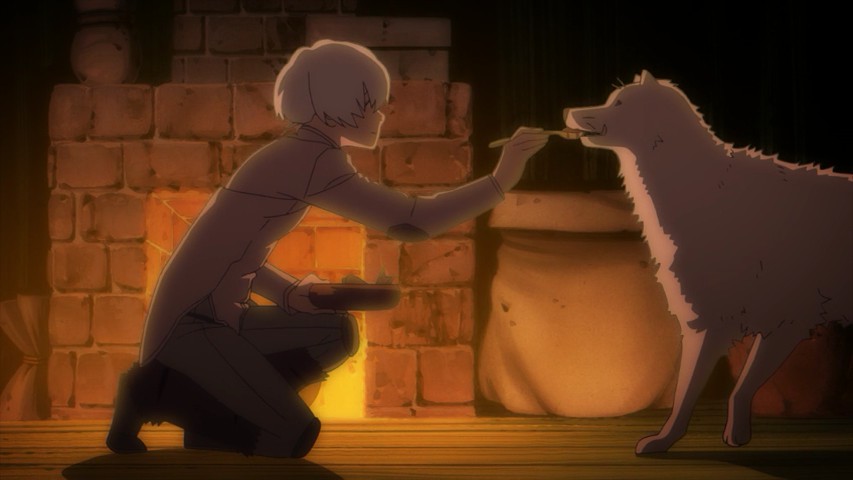
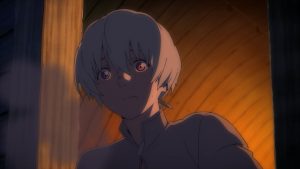
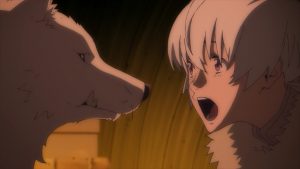
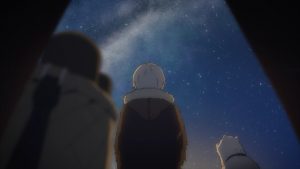
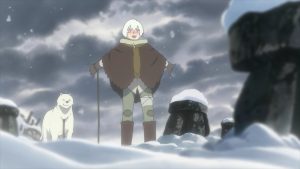
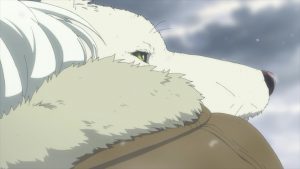
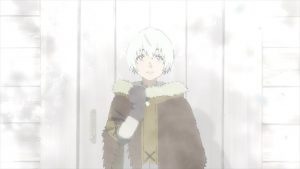
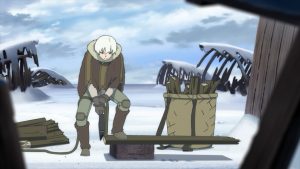
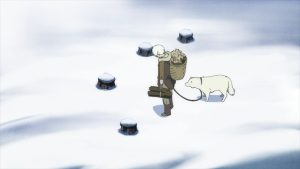
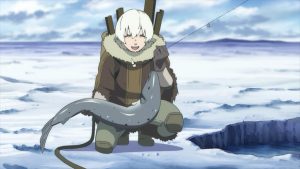
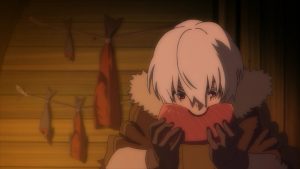
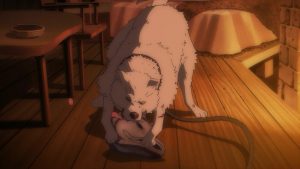
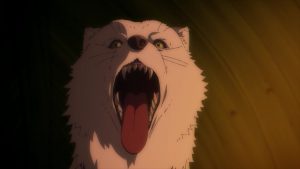
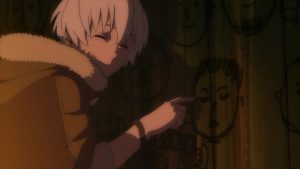
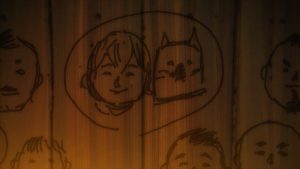
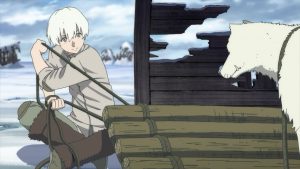
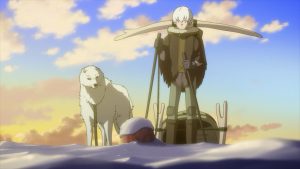

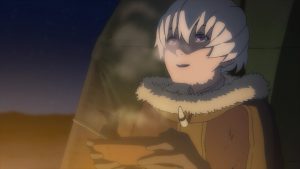
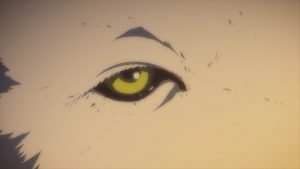
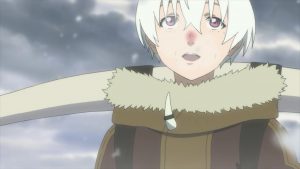
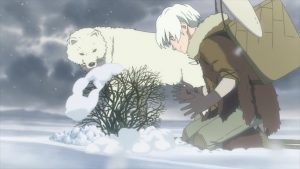
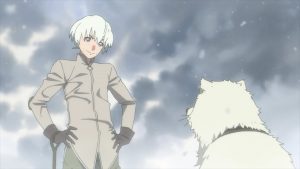
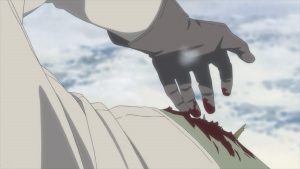
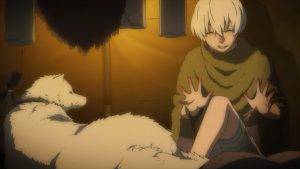
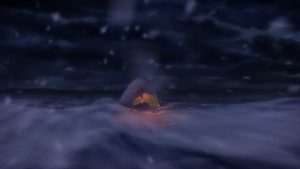
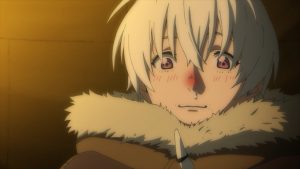
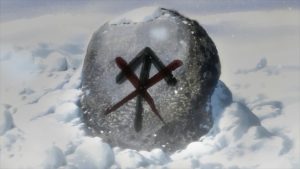
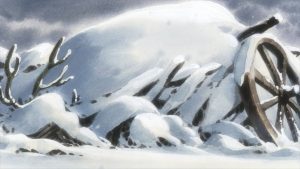
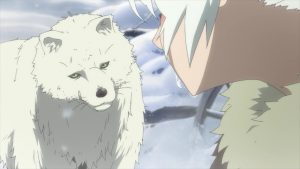
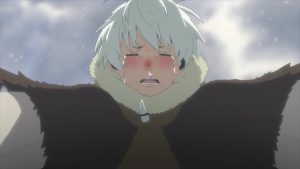
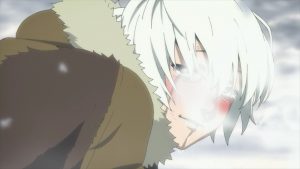
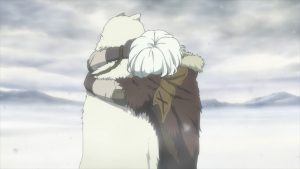
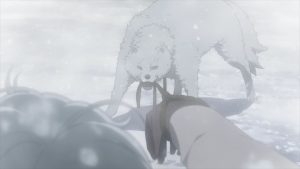
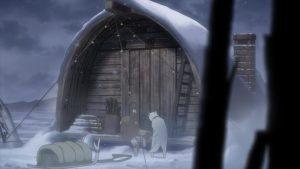
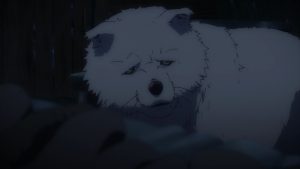
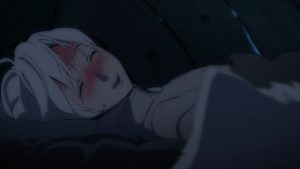
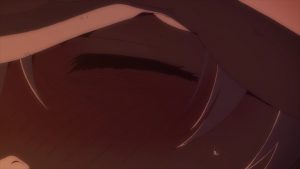
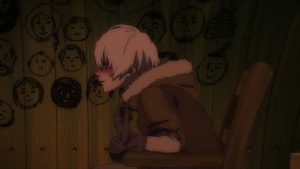
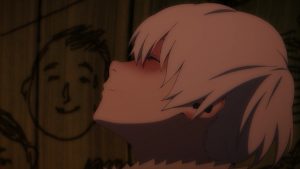
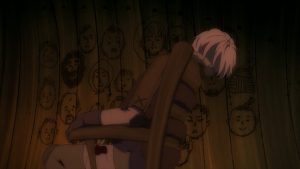
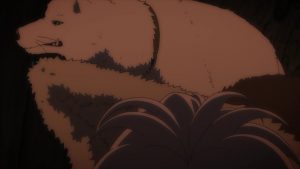
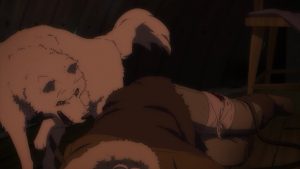
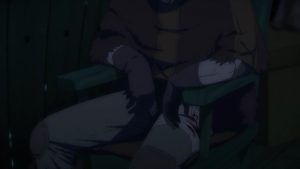
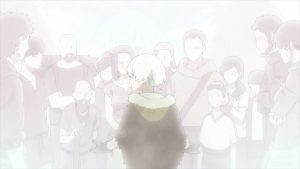
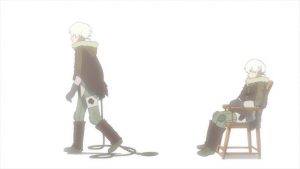
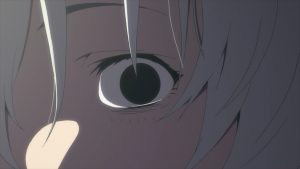
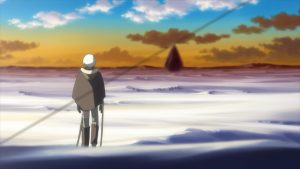
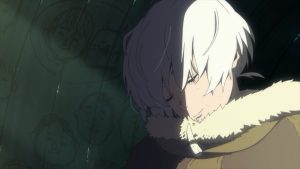
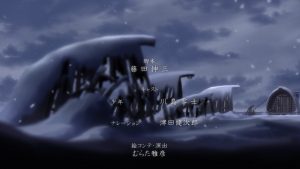
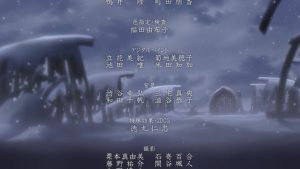
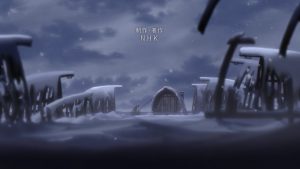
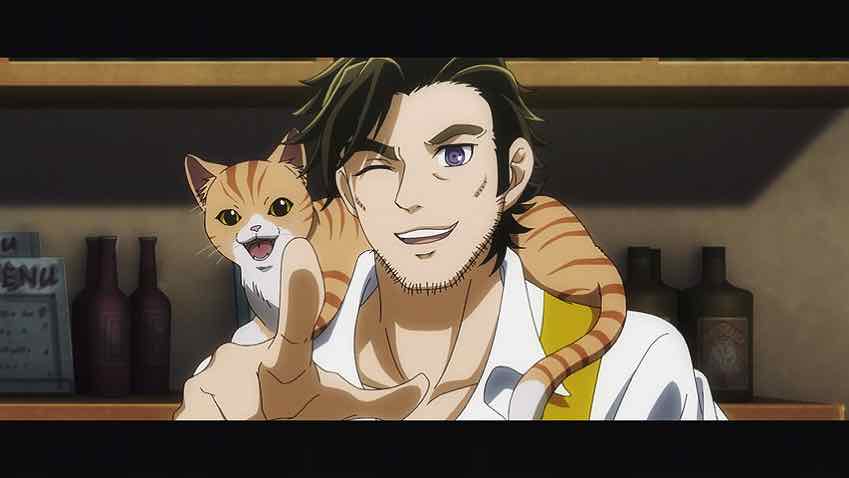
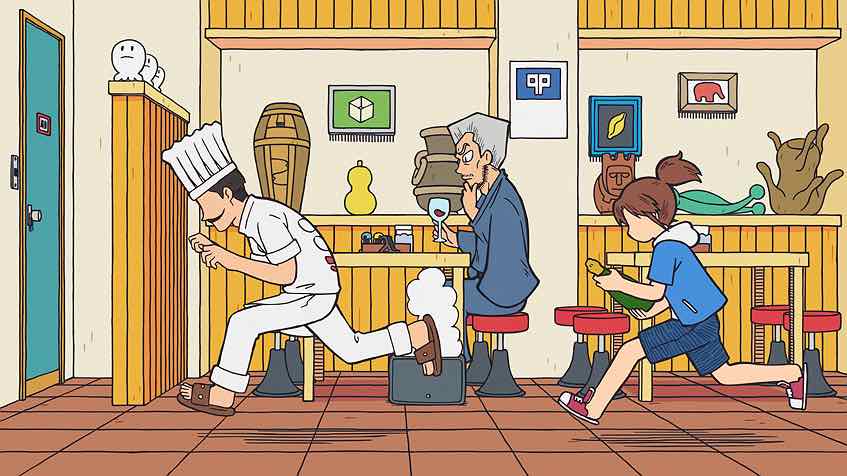
Ramses
April 13, 2021 at 9:07 pmGreat piece, as always! I think To Your Eternity has one of the most out-there plots I’ve ever read in manga. It’s continuously evolving, and at least from my point of view, you can never imagine where the plot is heading next. It’s almost like an anthology of stories from time to time.
Just a detail, though. Was the boy actually called Fushi? As far as I remember in the manga, the human boy remained nameless, and Fushi was the shortened Japanese name for the Immortal (which is why some translations called him Immo).
Guardian Enzo
April 13, 2021 at 10:14 pmI’d forgotten that detail but I guess you’re probably right. I don’t feel like it’s really a spoiler though.
Miyu Fan
April 13, 2021 at 9:16 pmI read the manga and while I’m a bit lost on the current arc, this is really an amazing fantasy manga by Ooima Yoshitoki, so I’m very happy this has been adapted into a TV anime (to make up the heartbreak from Koe no Katachi got a movie). I hope that with how anime gaining popularity from Demon Slayer and Jujutsu Kaisen, that now more good anime like this will get more attention. It is under NHK though so maybe To Your Eternity can attract some mainstream audience.
I can do without Tsuda Kenjiro though, he is doing fine here but he’s just literally everywhere that I’m just sick of his voice. Doesn’t help too that I just watched the Way of the Househusband with him as MC, took me out a bit when I watched the episode when his voice appears.
Derrick
April 13, 2021 at 11:23 pmStellar beginning although the continuation might be too stretched in some places.
Still miles better than others mind.
Riv
April 14, 2021 at 12:08 amI think the first anime that made me cry (a lot!) in the first episode. I’m not familiar with the manga and went in basically spoiler free– I really wasn’t sure if the boy would survive or not and was imagining a possible storyline where he survived and continued traveling with “Joann”. I’m looking forward to seeing where this goes. (Although i did have a hard time not envisioning Ogata from Golden Kamuy every time Tsuda Kenjiro spoke. Especially with the snowy landscape).
Guardian Enzo
April 14, 2021 at 7:36 amFor Goc’s sake, watch Cross Game stat.
John
April 15, 2021 at 9:34 amI’d love to watch Cross Game. Such a shame it’s completely unavailable legally. I know there are other ways, but…
Also Enzo, are you able to see email addresses or anything to distinguish commenters? Saw there was another John commenting. Maybe I’ll change my username or figure out how to add a picture to keep things from getting too confusing, ha.
Guardian Enzo
April 15, 2021 at 11:47 amI do see addresses, but not sure offhand if everyone does.
Snowball
April 14, 2021 at 12:19 amWell, that was despair of the highest order beautifully and authentically displayed on screen.
Kim
April 14, 2021 at 1:13 amI guess I am alone but I actually thought the first episode looked really cheap. The close ups were fine but the far away shots looked awful to me.
That being said I did enjoy seeing people’s reaction who did not read the manga. And universally people were really effected by this first episode so that was great to see.
And while I personally was not too happy with the look of the series the score was tragically beautiful and certainly added weight to the story
Ain
April 15, 2021 at 2:12 pmThe wolf didn’t want the boy to leave because he knows it won’t end well. I think the reason the wolf departed was because he tried to find a safe path for the boy to take (he’s gone for 2 months), in the end he didn’t make it to him. His dying wish (impetus) to go home to his owner was carried out by Fushi. So Fushi eventually found the boy despite not knowing where he should go. I’m not crying… you are 🙁
Guardian Enzo
April 15, 2021 at 4:05 pmInteresting interpretation.
Sein
April 16, 2021 at 4:12 am“Tsuda Kenjirou – nice to see him get some work at last” ROFL
As usual, a wonderful review!
Guardian Enzo
April 16, 2021 at 6:31 amWith an ep that good they about write themselves, but thank you nonetheless.
Bob
April 16, 2021 at 11:49 am>(newcomer Kawashima Reiji, sounding a bit like Yamashita Daiki)
I thought that, but settled on him sounding more like Ayumu Murase. Anyways, it’s a testament to the strength of the material that despite knowing that the boy would die the moment he was introduced his death still hit hard. This is a series I’ll continue to watch.
Color2413
April 17, 2021 at 6:21 am(Spoilers for “Wolf’s Rain” follow)
Although the details are very different, emotionally ep 1 of To Your Eternity nevertheless reminds me a lot of episode 28 of “Wolf’s Rain” (which I rewatched last year),.However, the WR ep is even more tragic, hard as it is to believe.
Like WR ep 28, ep 1 of To Your Eternity exists in a frozen world, and the main characters are wolves and humans. (In WR’s case, the wolves are shape-shifters who can also appear as human). In WR, the most “human,” vulnerable, and loveable of the pack is murdered by a fanatical, pathetic drunk, who also becomes mortally wounded through no fault of his victim. The dying wolf snuggles against his dying murderer, providing warmth and comfort, and forgiving the sin that is hardest of all to forgive. (I have always seen this as a metaphor for ideal Christian forgiveness where the wolf/man, Toboe, is a Christ-like figure, even though it is unlikely that WR’s writers came from that tradition.) The scene packs a stunning emotional wallop. We have gotten to know these characters over the course of 27 episodes, and we now discover their ultimate fate.
While WR as a whole is a mixed bag, not achieving the consistent quality of its Bones’ predecessor Rahxeophon, the final four episodes operate on a higher level of artistry than the previous 26. This is probably because the final four were released as a OVAs, making up for a schedule slip in the broadcast that resulted in four filler episodes. Being OVAs, they benefitted from a more relaxed production schedule. The final four are the most emotionally harrowing I can recall in all of anime, the ultimate message being that there is no shortcut to Paradise that bypasses death. “No one gets out of here alive.”
Yukie
April 17, 2021 at 3:13 pmHad some reservations when I found out that it was created by the same person who made Koe no Katachi, which while good had a tendency of leaning a little too hard into the sentimental and pushing the plot with melodrama sometimes. And while these reservations aren’t completely gone, this first episode made me tear up proper (is every episode going to be this gut-wrenching?). I really liked that it’s got a Kino’s Journey vibe with a dash of Mushishi.